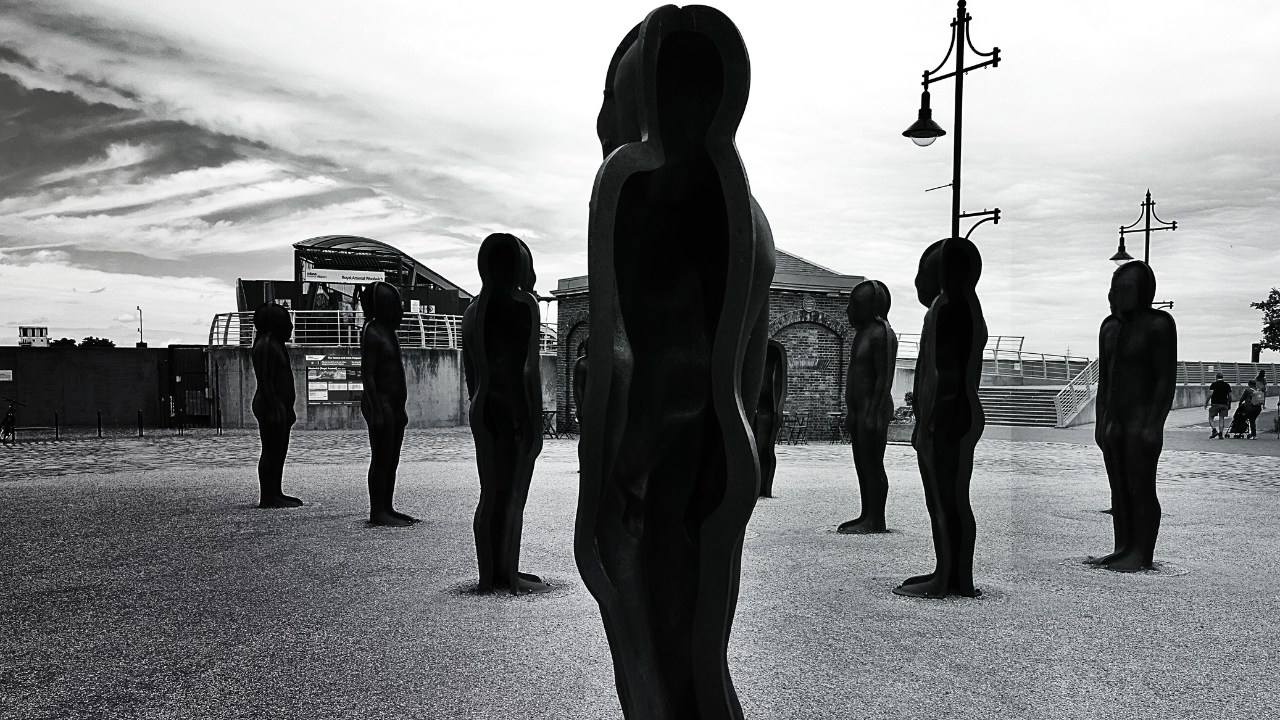A deep dive into humanity’s unsettling psychological tendencies and their impact on society
Explore Scary facts about Humans and their effects on relationships, society, and survival.
The Shadow of Tribal Psychology
Our innate tribal psychology continues to drive destructive social behavior even in our modern world. Humans instinctively categorize others into “us vs. them” groups, leading to prejudice, discrimination, and dehumanization of those perceived as outsiders. This manifests in everything from sports team rivalries to ethnic conflicts and nationalism. Research shows that even arbitrary group assignments in controlled settings can trigger hostile biases, highlighting how deeply ingrained this tribal mindset remains.
The Bystander Effect: Our Disturbing Social Paralysis
Perhaps one of the most chilling aspects of human psychology is our tendency to remain passive in emergency situations when others are present. The infamous 1964 murder of Kitty Genovese, where multiple witnesses failed to intervene, exemplifies this phenomenon. As group size increases, individual feelings of responsibility decrease, creating a dangerous diffusion of responsibility. Understanding this trait helps explain historical atrocities where masses stood by while minorities faced persecution.
The Banality of Evil
Humans have a remarkable capacity to normalize and participate in evil acts when sanctioned by authority figures. Stanley Milgram’s shock experiments revealed that ordinary people would inflict apparent harm on others simply because an authority figure instructed them to do so. This psychological mechanism helped enable some of history’s worst atrocities, as normal citizens became complicit in systematic cruelty when it was officially sanctioned.
Our Selective Empathy
While humans are capable of profound empathy, we apply it inconsistently and often illogically. People regularly show more emotional distress over a single identified victim than anonymous masses suffering similar fates. This “identifiable victim effect” explains why we might donate to help one child while remaining unmoved by statistics about millions facing similar hardships. This cognitive bias limits our ability to respond appropriately to large-scale human suffering.
The Illusion of Moral Superiority
Most humans maintain an unwavering belief in their own moral righteousness, even while acting unethically. Studies show that people consistently rate themselves as more ethical than average, a statistical impossibility. This self-deception allows individuals to justify harmful actions while maintaining a positive self-image, contributing to cycles of conflict where each party believes they hold the moral high ground.
Our Capacity for Cognitive Dissonance
Humans excel at holding contradictory beliefs and engaging in behavior that conflicts with stated values. We can simultaneously recognize environmental threats while continuing environmentally destructive behaviors, or advocate for equality while maintaining discriminatory practices. This ability to compartmentalize allows us to avoid uncomfortable truths about ourselves and our actions.
The Dark Side of Conformity
Solomon Asch’s conformity experiments revealed humans’ disturbing tendency to deny obvious truths to fit in with a group. This desire for social acceptance can override basic rational judgment and moral convictions. Modern social media echo chambers exemplify how this trait continues to shape behavior, as people conform to group narratives despite contradicting evidence.
Our Predictable Irrationality
Despite priding ourselves on logic and reason, humans consistently make irrational decisions based on cognitive biases and emotional impulses. We regularly choose short-term gratification over long-term wellbeing, maintain harmful beliefs in the face of contrary evidence, and make decisions based on sunk costs rather than future outcomes. This predictable irrationality threatens our ability to address complex global challenges.
The Power of Destructive Narratives
Humans show a remarkable capacity to embrace narratives that justify cruelty and oppression. Throughout history, societies have constructed elaborate mythologies to rationalize slavery, genocide, and other forms of systematic violence. These narratives tap into our tribal psychology and moral self-deception, creating powerful cultural forces that can persist for generations.
Our Environmental Blindness
Despite clear evidence of environmental degradation, humans struggle to modify behaviors that threaten our own survival. This “environmental numbness” stems from our evolutionary history, where immediate threats took priority over long-term risks. Our psychological makeup leaves us poorly equipped to respond to gradual, complex threats like climate change.
Moving Forward: Understanding Our Dark Side
Recognizing these disturbing traits isn’t meant to inspire despair but rather to promote awareness and mitigation strategies. By understanding our psychological vulnerabilities, we can design social systems and personal practices that account for them. This might include:
- Creating institutional safeguards against tribal biases in decision-making
- Developing educational programs that foster critical thinking and awareness of cognitive biases
- Building social structures that reward long-term thinking and collective benefit
- Promoting transparency and accountability to counter our tendency toward moral self-deception
While these dark traits are deeply ingrained in human psychology, they don’t define our entire nature. Humans also demonstrate remarkable capacity for cooperation, innovation, and moral growth. The key lies in understanding and actively managing our psychological tendencies rather than being unconsciously driven by them.
Also Read:

